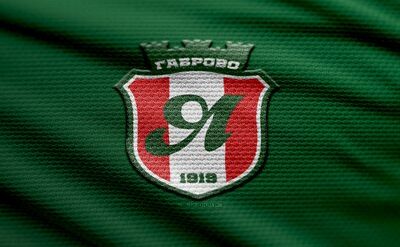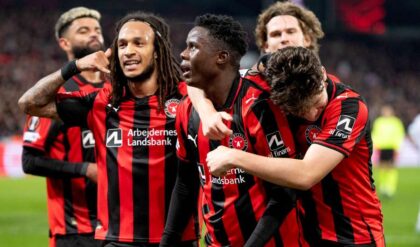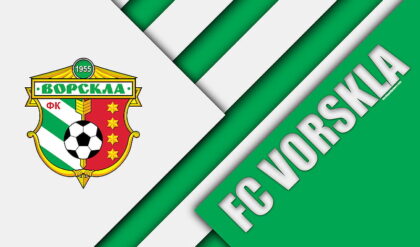Philadelphia Union FC has become a powerhouse in Major League Soccer, celebrated for its loyal supporters, tactical innovation, and strong community ties. With a rich history and evolving strategy, the club continues to influence American soccer in major ways. Read more: https://ww88.flights/ to explore their journey, key players, and future potential.
The Rise of Philadelphia Union FC in Major League Soccer
Philadelphia Union FC’s journey from inception to becoming a competitive force in MLS is both inspiring and instructive. Established in 2008 and beginning play in 2010, the club quickly gained recognition for its ambitious plans and community-centric approach. Their rise can be attributed to strategic management, talented recruitment, and a clear vision that emphasizes youth development and innovative tactics.
Origins and Establishment of Philadelphia Union FC
When Major League Soccer announced Philadelphia as an expansion franchise in 2008, expectations were high. The city’s rich soccer culture, combined with its passionate sports fans, created fertile ground for the club’s growth. Initially led by owner Jay Sugarman, who envisioned building a team rooted in community values, the club set out to establish a unique identity.
The club’s early years were challenging, marked by the typical growing pains of a new franchise. However, they laid a solid foundation by focusing on local talent, forging strong community ties, and investing in infrastructure. Their first home, Talen Energy Stadium (now Subaru Park), became a hub for enthusiastic supporter groups and fostered a sense of belonging among fans.
Strategic Growth and Key Milestones
Over the years, Philadelphia Union FC made significant strides through strategic signings, tactical adjustments, and infrastructural improvements. By hiring experienced coaches like Jim Curtin, they focused on building a cohesive team that could compete at the highest levels of MLS.
One major milestone was their qualification for the MLS Cup Playoffs in 2011, just two years after their debut, demonstrating rapid progress. Their consistent performances, especially from talented homegrown players like Brenden Aaronson and Mark McKenzie, showcased their capacity to develop young talent. The signing of international players further elevated the team’s competitive edge.
Building a Competitive Identity
The club’s rise wasn’t just about winning games but establishing a distinct playing style. Philadelphia Union FC adopted a possession-based, attacking philosophy, emphasizing midfield control and quick transitions. This tactical approach resonated with fans and helped differentiate them from other teams lacking fluidity and offensive prowess.
Furthermore, their investment in youth academies and development programs underscores their long-term vision. The club’s leadership recognized that sustained success depends on nurturing local talent, which pays dividends both on and off the field.
Challenges and Resilience
Despite their successes, Philadelphia Union FC faced setbacks, including injuries, inconsistent form, and tough losses in crucial fixtures. Yet, their resilience and adaptability kept them in the playoff conversation year after year. The club’s ability to learn from setbacks and continuously refine their tactical approach exemplifies their growth mindset.
In recent seasons, they’ve become a symbol of stability and ambition within MLS, maintaining a balance between experienced veterans and promising youths. This strategic blend has allowed them to sustain competitiveness and build toward future championships.
Key Players Shaping Philadelphia Union FC’s Success
The foundation of any successful football club lies in its players. Philadelphia Union FC boasts a roster filled with impactful talents, ranging from seasoned internationals to emerging youngsters. These individuals have played pivotal roles in elevating the team’s performance and reputation.
The Ambassadors: Veteran Leaders and Their Influence
Veteran players serve as the backbone of the team, providing leadership and experience during intense matches. One such figure is goalkeeper Andre Blake, whose exceptional shot-stopping skills and commanding presence have been instrumental in their defensive solidity.
Blake’s leadership extends beyond goalkeeping; his vocal presence organizes the backline and inspires confidence among teammates. His numerous clean sheets and individual awards testify to his importance.
Defenders like Kai Wagner and Jack Elliott also contribute significantly to the team’s stability. Wagner’s offensive runs down the flank and crossing ability make him a dual threat, while Elliott’s aerial prowess and tactical awareness ensure defensive resilience.
Rising Stars and Young Talents
Philadelphia Union FC’s emphasis on youth development is evident in the emergence of players like Daniel Gazdag and Julian Carranza. Gazdag, a Hungarian midfielder, brings creativity, vision, and scoring ability, often orchestrating attacks from deep positions.
Carranza, a dynamic forward, provides speed, dribbling, and goal-scoring instinct. His performances have attracted attention from larger leagues, underscoring the club’s role as a launchpad for young stars.
Additionally, academy graduates such as Paxten Aaronson continue to shine, embodying the club’s commitment to fostering local talent. These young players not only contribute on the pitch but also symbolize the club’s future aspirations.
Impact of International Signings
International players have added depth and skill to Philadelphia Union FC’s roster. The signing of Danish midfielder Mikael Uhre and Slovakian winger Jakub Podgorski exemplify this strategy.
Uhre’s versatility and goal-scoring acumen have been vital in key matches, while Podgorski’s creativity enhances the team’s attacking options. These internationals often bring different tactical perspectives, enriching the team’s overall approach.
The Role of Coaches and Staff
While individual players drive success, coaches like Jim Curtin have shaped the team’s style and culture. Curtin’s tactical flexibility, player development focus, and ability to motivate have forged a resilient squad capable of competing in various situations.
Moreover, the club’s support staff, including analysts and physiotherapists, contribute to optimizing player performance and managing injuries, ensuring the team remains competitive throughout demanding seasons.





